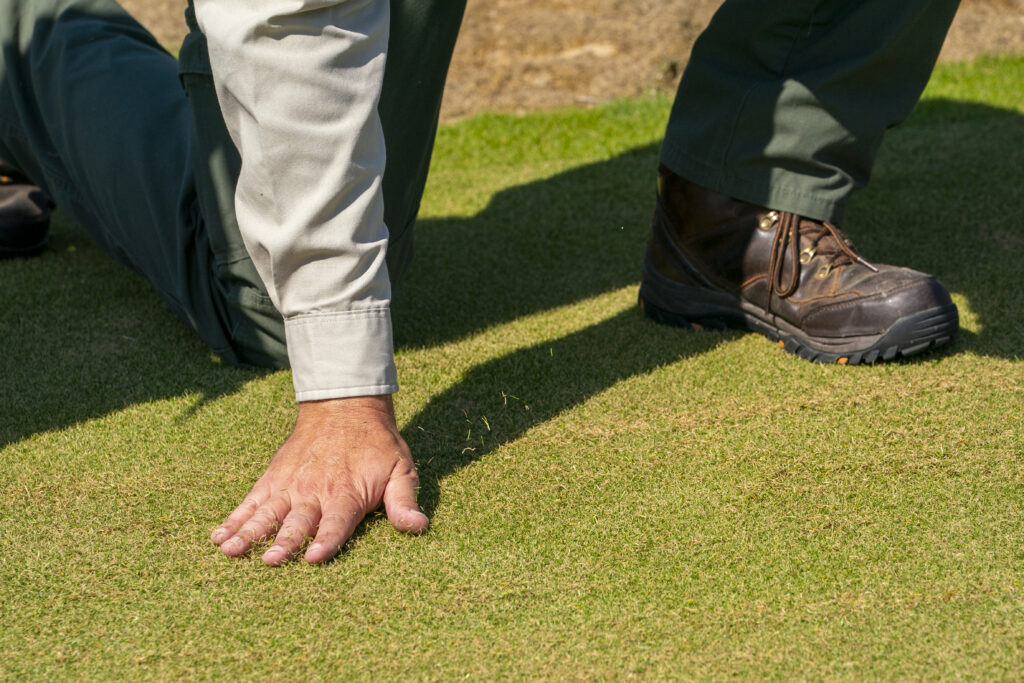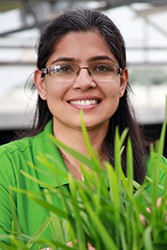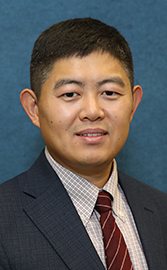Irrigated and non-irrigated turfgrass covers over 63,000 mi2 of land area in the United States, which is greater than that of every other irrigated crop. Texas is becoming an increasingly urbanized state with nearly 88 percent of Texans now living in urban areas. Houston, the Dallas/Fort Worth Metroplex, and San Antonio rank among the 12 most populated regions of the United States. Turfgrass systems offer numerous environmental benefits and serve many functions in urban and suburban landscapes.
Primary roles of turfgrass are soil stabilization, water conservation, oxygen production, CO2 sequestration, and filtration water borne pollutants. Actively growing turf is also highly effective in control of environmental pollution, such as the suppression of dust, glare, and noise, and in heat dissipation, especially in the arid and semi-arid regions of the United States. Healthy growing turfgrasses act as biological filters and remove atmospheric pollutants. In addition to the positive benefits to the environment, turfgrasses play an important agronomic role in Texas.
The U.S. turfgrass industry has an economic impact of over $60 billion and employs more than 820,000 individuals in the United States. The turfgrass industry contributes an estimated $6 billion annually to the economy of Texas and ranks as the number one valued agricultural crop in the state. The State of Texas is #2 in Sod Production in United States. The economic contribution from new parks, sports fields, golf courses, commercial lawns, cemeteries, airport and industrial grounds, and highway roadsides also contribute significantly to the economy of the Texas turfgrass industry. The scope of the turfgrass industry provides substantial and continuing employment opportunities for the citizens of Texas.

Research Interests
The Texas A&M University System has helped turfgrass managers, landscapers, sod producers, and the general public solve turfgrass related problems for many years. Through a network of research, extension, and teaching programs, Texas A&M has provided solutions based on sound research, extensive outreach educational programs,and assistance through statewide and county extension activities.
Research efforts strive to integrate urban landscape systems to enhance quality of life, develop improved technologies for the management of weeds, diseases, insects, and other important pests, develop turf systems to reduce impact of environmental pollutants, and develop landscape management systems that conserve natural resources. These research priorities are addressed through strong interdisciplinary cooperation in agronomy, breeding and genetics, plant physiology, entomology, pathology, weed science, and soil science, plant nutrition, and water quality.
Faculty/Staff
Pablo Agustin Boeri
Assistant Professor
Turfgrass Extension SpecialistAmbika Chandra
Professor and Assistant Director of Texas A&M AgriLife Research & Extension Dallas
Turfgrass Genetics & BreedingBaoxin (Bob) Chang
Assistant Professor
979-321-5930
Scotts Landscape and Turfgrass Research Facility,
3100 F and B Road, College StationManuel Chavarria
Assistant Professor and Extension Specialist
Turfgrass Stress PhysiologySae Hyun Lee
Postdoctoral Research Associate
Texas A&M AgriLife Research & Extension Center - Dallas
Benjamin Wherley
Professor
Turfgrass Science & Ecology
2014 Awards
- Texas Turfgrass Research, Teaching and Extension Endowment Undergraduate Scholarship
- Growth Suppression of Creeping bentgrass Putting Greens Using Combination Plant Growth Regulators
- Evaluating Winter Overseeding vs. Painting of Bermudagrass Under Municipal Water Restrictions and Traffic
- The Effects of Various Aeration Practices and Soil Amendments on Soil Moisture
- Aggie Turf Website Re-design and Update
Related Sites of Interest
- AggieTurf
- Soil & Crop Publications
- Soil, Water and Forage Testing Laboratory
- Texas Plant Disease Diagnostic Lab
- Texas AgriLife Research
Learn More About Research Areas of Focus in Soil and Crop Sciences
In the realm of soil and crop sciences, research focuses on a myriad of critical areas that drive sustainable agricultural practices and global food security. Soil health and management take center stage, exploring ways to optimize soil fertility, structure, and nutrient cycling to enhance crop productivity. Genetic advancements in crop breeding and biotechnology are pursued to develop resilient varieties that withstand environmental stressors and ensure high yields. Precision agriculture, integrating technology and data analytics, aims to fine-tune farming practices, reducing resource waste and maximizing efficiency. The exploration of sustainable agroecosystems delves into the intricate relationships between crops, soil, and the environment, fostering environmentally friendly approaches. Such research not only informs farming practices but also contributes to vital policy discussions, shaping the future of agriculture in a rapidly changing world.





